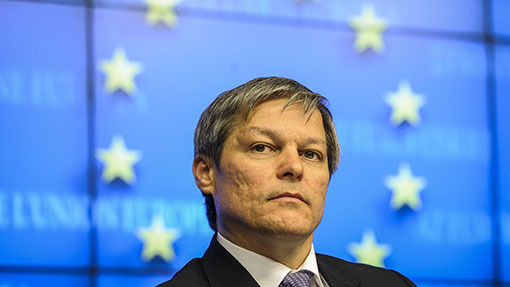EU reveals emergency dairy measures after Russia ban

The European Commission has announced emergency measures to help the dairy sector cope with the impact of Russia’s import ban.
The commission will help fund the storage of butter, skimmed milk powder and some cheeses for three to seven months.
This move is aimed at easing the pressure of oversupply on prices, as world dairy commodity markets are already weak and milk production remains high.
Dairy was one of the sectors hit hardest by Russia’s ban on Western food shipments.
EU dairy exports to Russia totalled €2.3bn (£1.8bn) in 2013, with the market accounting for a third of cheese and just under a fifth of butter shipments.
“Price signals on the European dairy market shows that the Russian ban is starting to hit this sector.”
Dacian Ciolos, EC agriculture commissioner
Agriculture commissioner Dacian Ciolos said the European dairy sector needed time and help to adapt.
He added that further measures would follow if they were needed.
See also: Russia import ban hurts UK dairy companies
“Price signals on the European dairy market shows that the Russian ban is starting to hit this sector,” Mr Ciolos said.
“In a number of member states, export earnings are being lost and new outlets need to be found.”
Private storage aid is part of the current CAP system.
The European Commission will pay for part of the storage cost, based on a fixed rate per tonne added to a set daily rate.
The rules only include provision for butter, skimmed milk powder and protected cheeses so the commission will need to use exceptional powers to cover more products.
DairyCo analysis has said that Russia’s ban should have little direct impact on the UK.
The country accounts for less than 1% of British cheese, butter, skim and whole milk powder shipments.
But the levy board predicted that there would likely be some downward pressure of UK wholesale prices while EU products orginally destined for Russia found new homes.
